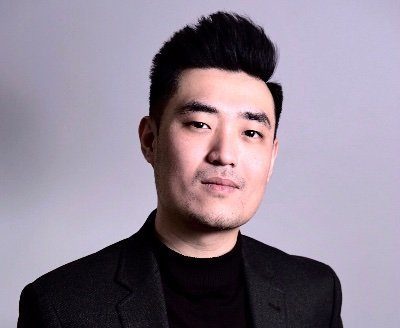Age: 28
Origin: Almaty, Kazakhstan
Based in: Cleveland, USA
Education: Cleveland State University, Université Grenoble Alpes
Occupation: Cofounder, Consilienz
Nurmagambetov is among one of the most prominent Kazakh entrepreneurs who established their business in the United States. Nurmagambetov founded the venture, Consilienz, with his 66-year-old business partner from Tanzania. Consilienz offers IT and software solutions aimed at detecting fraudulent financial transactions and human trafficking detection for corporate and state-owned actors. While still a relatively small venture with under $10 million revenue, Nurmagambetov’s rapid success in the “money movement” industry is already attracting attention.
Just over three years ago, Nurmagambetov could not have imagined what he would be doing now. After graduating from university in 2014, his career had something of a turbulent beginning. He moved back to Kazakhstan, where he worked at Carlsberg for half a year. His first encounter with financial fraud happened there – among his responsibilities was overseeing the flow of marketing funds.
In 2015, Nurmagambetov moved back to the United States and landed his first stable job there by 2016. He joined a diversified industrial company, Innovest Global, where he continued to work in marketing. However, Nurmagambetov could not settle in one place and quit his job after a year to join his friend’s startup. The venture quickly withered and he was back on the job market. He says that over the course of 10 months he received 275 rejections from different companies. This ended in late 2017, when suddenly Nurmagambetov was at a crossroads with two job offers. One, from prestigious IT giant Oracle, which was very difficult to refuse. Another, from a Kazakh company that had just entered the U.S. market, offered one-third of the salary and even less stability. He chose the latter — looking back on this decision, he is proud to have made the right choice. Over the course of a year, Nurmagambetov became the CEO, while the company took leading positions as a vendor in AI and blockchain technologies. Until his departure in 2019, in this role, Nurmagambetov became acquainted with big data, security, money laundering, corruption and terrorism prevention practices. This later served as a foundation for the launch of his own company.
By 2019, Nurmagambetov was keen to develop his own venture, rather than continue working as a corporate executive. With a fair share of luck, he was able to leverage his existing knowledge and network in the area of “money movement” to find the right partner and necessary funding. His first own venture, Consilienz, was formed. The focus of Consilienz is to leverage big data in order to gather as much information about people and companies that are involved in a transaction. As a result, Nurmagambetov states banks are able to save up to 50 percent of their expenditure on analysts that manually oversee transaction behaviour, as well as reduce their exposure from fines issued by regulators.
With increasing government expenditures post-pandemic, Nurmagambetov’s idea also attracted attention from the U.S. federal government. In order to track the coronavirus relief fund distribution, the government commissioned a contract, which Consilienz won in partnership with IBM. While attracting some criticism at home for collaborating with a foreign government, Nurmagambetov is excited about what this contract may bring for the future of Consilienz. Their next objective is to reach a market of more than 5,000 banks to sign clients and grow their business and offers.
In 2021, the rapid success and social impact of Consilienz’s work secured recognition. Nurmagambetov was included in Forbes’s Next 1000 list as one of the most promising smaller-scale startup founders. He points to his youth as a marker for the money movement industry. At the age of 28, he says most people at his level are at least 25 years older, making plenty of time for the development and growth of Consilienz, or for venturing into new areas.
Quote: “I just tried everything, one after the other – from working for a brewery to education and banking. I managed to use soft skills, I had to continuously test myself a lot and win battles in my own head.” (Source: FORBES.KZ, 2021)

